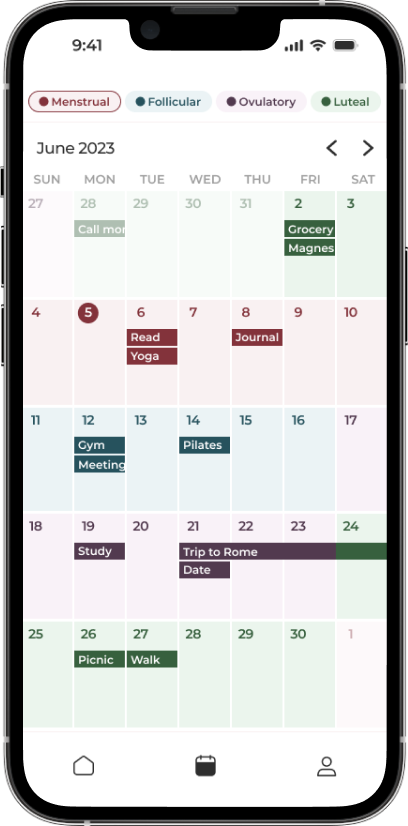What Is Travel Coaching?

Travel coaching is a unique and empowering process that guides individuals in creating transformative travel experiences. It involves personalized guidance, support, and expertise to help individuals maximize their adventures, discover new perspectives, and create lifelong memories. In this article, we will delve into the essence of travel coaching, exploring its core principles, benefits, and strategies for creating extraordinary journeys.
Tailoring Experiences to Suit You
One of the key aspects of travel coaching is the creation of personalized itineraries that cater to the specific needs, interests, and preferences of the traveler. A travel coach works closely with the client to understand their travel goals, desired destinations, and unique interests. They curate an itinerary that includes a mix of must-see attractions, hidden gems, cultural experiences, and activities that align with the client’s travel style. By tailoring the itinerary, travel coaching ensures that every aspect of the journey resonates with the traveler, allowing for a more immersive and fulfilling experience.
Strategies for Tailoring Personalized Itineraries
- Goal-setting and vision: Identify your travel goals, the purpose of your trip, and the experiences you wish to gain during your journey.
- Destination research: Conduct thorough research on your desired destinations, including cultural nuances, local customs, and unique attractions.
- Client-coach collaboration: Engage in open communication with your travel coach, providing insights into your interests, preferences, and travel expectations.
- Customized activities: Incorporate activities and experiences that align with your interests, such as culinary tours, adventure excursions, or historical explorations.
- Flexibility and spontaneity: Leave room in the itinerary for spontaneous discoveries and unexpected adventures, allowing for a more organic travel experience.

Check out the Vision to Action Planner for only 6$
More infoBenefits of Travel Coaching
With the help of a travel coach, individuals can gain valuable insights and guidance from someone with extensive travel experience. A travel coach helps you navigate the complexities of trip planning by offering personalized advice, tailored to your preferences and goals. This leads to more efficient planning, ensuring that you make the most of your journey while avoiding common pitfalls such as overspending, difficulty navigating local transportation, or packing too much or too little. By addressing these concerns, a travel coach can help you feel more confident and prepared, resulting in a smoother and more enjoyable travel experience.
- Unforgettable experiences: Travel coaching helps individuals uncover unique destinations, hidden gems, and immersive experiences that may have otherwise been overlooked.
- Personal growth and self-discovery: Through travel, individuals can expand their horizons, challenge their comfort zones, and gain new perspectives, leading to personal growth and self-discovery.
- Enhanced cultural understanding: Travel coaching promotes cultural sensitivity, allowing individuals to engage with local communities, embrace diversity, and foster meaningful connections.
- Reduced travel stress: By providing guidance on logistics, safety, and planning, travel coaching helps minimize travel stress and allows individuals to focus on enjoying their journey.
- Travel tips and tricks: With the assistance of a travel coach, individuals can better plan for their trips by learning from someone else’s experience.
Travel Agency vs Travel Coaching
Travel agencies and travel coaching provide different approaches to travel planning. A travel agency handles most of the logistics for you, from booking flights and accommodations to organizing tours and transportation. It’s a good option for travelers who want everything managed. Travel coaching, however, focuses on offering personalized advice and support, helping clients plan trips that align with their interests, preferences, and style. While agencies focus on handling the details, travel coaches guide clients to make more informed travel choices, often enhancing the overall experience by giving them tools to plan their trips more independently in the future.
Knowledge and Skills for New Travelers
Travel coaching goes beyond itinerary planning. It equips travelers with the knowledge, skills, and resources to make the most of their journeys. A travel coach provides guidance on various aspects, such as navigating unfamiliar destinations, managing travel logistics, engaging with local cultures, and staying safe while abroad. By empowering travelers with essential tools and insights, travel coaching enables individuals to embark on their adventures with confidence and a sense of preparedness.
- Cultural intelligence: Develop an understanding of different cultures, traditions, and social norms to navigate cultural interactions respectfully.
- Language basics: Learn key phrases or expressions in the local language to facilitate communication and connect with locals on a deeper level.
- Travel planning essentials: Gain knowledge on booking accommodations, transportation options, travel insurance, and visa requirements.
- Safety and security: Familiarize yourself with safety protocols, emergency contacts, and precautions specific to your chosen destinations.
- Mindful travel: Embrace responsible travel practices by minimizing environmental impact, respecting local communities, and supporting sustainable initiatives.
Do Your Research Before You Go
Before setting off on your trip, spend some time learning about your destination. Knowing the basics about local culture, customs, and language can help you feel more comfortable and prepared.
- Cultural Etiquette: Understand the do’s and don’ts of your destination. Certain behaviors considered normal in one country might be inappropriate in another.
- Local Laws: Make sure you’re aware of important laws, especially if you’re visiting countries with strict regulations about dress codes, alcohol consumption, or public behavior.
- Language Basics: Learn a few key phrases in the local language, such as greetings and common questions. It’s a great way to show respect and may help you navigate easier.
Pack Smart and Light
Overpacking is a common mistake for first-time travelers. Bringing too much can make it harder to move around and more stressful to keep track of your belongings.
- Essentials First: Focus on packing essential items, such as comfortable clothes, travel-sized toiletries, and important documents (passport, tickets, insurance).
- Leave Room for Souvenirs: You’ll likely want to bring back souvenirs or gifts, so leave some space in your luggage.
- Check the Weather: Research the weather conditions of your destination and pack accordingly, so you’re prepared for any surprises.
Organize Your Documents
Keeping your travel documents in order is key to avoiding stressful situations. Make sure everything is easily accessible and well-organized.
- Make Copies: Take photocopies of important documents, like your passport, visa, travel insurance, and itinerary, in case you lose the originals.
- Keep Digital Backups: Store digital copies of your travel documents on your phone or cloud storage for easy access.
- Use a Travel Wallet: Keep your passport, boarding passes, and other essential items in a travel wallet to stay organized.
Stay Flexible with Your Plans
While it’s important to plan certain aspects of your trip, being flexible can open you up to new experiences and prevent stress if things don’t go as planned.
- Leave Room for Spontaneity: You may discover activities or locations that weren’t on your original itinerary. Allow for some free time to explore without a strict schedule.
- Have Backup Plans: Sometimes things don’t go as planned, whether it’s a delayed flight or an unexpected closure. Having a backup plan or an alternative activity in mind can keep the trip enjoyable.
- Don’t Overbook Yourself: It’s tempting to try and see everything, but packing too many activities into your schedule can lead to exhaustion. Balance sightseeing with downtime.
Prioritize Safety
Staying safe should always be a top priority when traveling, especially in unfamiliar environments.
- Stay Aware of Your Surroundings: Be mindful of your surroundings, especially in crowded areas where pickpocketing may occur.
- Trust Your Instincts: If something doesn’t feel right, don’t hesitate to remove yourself from the situation.
- Use Secure Wi-Fi: When accessing sensitive information, such as your bank account, use secure Wi-Fi connections or a VPN to protect your data.
Learn to Navigate Like a Local
Getting around in a new place can be daunting, but learning how to navigate efficiently can save time and reduce stress.
- Use Offline Maps: Download maps or navigation apps that work offline in case you don’t have access to Wi-Fi or mobile data.
- Ask Locals for Directions: Don’t hesitate to ask locals for help. They often provide better and more accurate directions than apps.
- Familiarize Yourself with Public Transport: Research the public transportation system beforehand. Many cities offer affordable and easy-to-use options like buses or metro systems.
Budget Wisely and Track Your Spending
Managing your finances while traveling is crucial to avoid running out of money or overspending on unnecessary items.
- Set a Daily Budget: Create a daily spending limit to help control costs and ensure you have enough money for the entire trip.
- Use Local Currency: Whenever possible, use the local currency to avoid unfavorable exchange rates and extra fees.
- Track Your Spending: Use an app or write down expenses to stay on top of your budget and prevent surprises at the end of your trip.
Find Activities and Meet People While Traveling
Exploring new places becomes even more exciting when you discover local activities and connect with fellow travelers or locals.
- Use Travel Apps: Apps like Meetup, Couchsurfing, or Airbnb Experiences can help you find local events, tours, or gatherings tailored to your interests.
- Join Group Tours: Group tours are a great way to meet like-minded travelers while exploring a new place. Many hostels or travel agencies offer day trips or activities where you can easily make new friends.
- Attend Local Events: Look for local festivals, markets, or cultural events happening during your stay. These experiences allow you to immerse yourself in the local culture and potentially meet new people.
- Stay in Social Accommodations: Hostels or shared accommodations often have common areas where travelers gather to socialize. These settings make it easy to strike up conversations and form new connections.
- Volunteer or Take a Class: Consider volunteering or joining a local class (such as cooking or language lessons) during your trip. Not only will you learn something new, but you’ll also have the opportunity to meet locals and travelers with similar interests.
Still waiting for the 'perfect time'?
Email me what you'd do if you stopped making excuses. We'll work backwards from there.
Let's startRecent posts
-
The Complete Guide to Becoming a High Achiever
Read blog -
How To Make a Positive Impact in Your Community
Read blog -
What Is the “Winter Arc” Challenge?
Read blog -
What Is "the Great Lock-In" and Should You Try It?
Read blog -
What Are the 75 Hard and Soft Challenges?
Read blog -
How to Validate Yourself
Read blog

The App Made To Sync Your Lifestyle to Your Menstrual Cycle.
A solution for women who are looking to keep track of what they sync to their cycles, such as fitness, diet, etc. by adding it to a calendar that also predict their phases.
Learn more




Comment